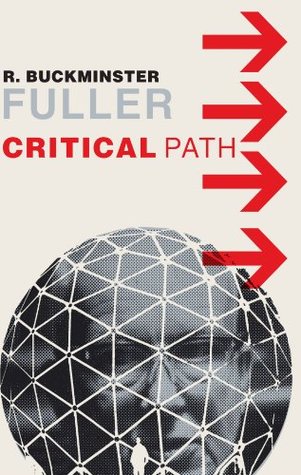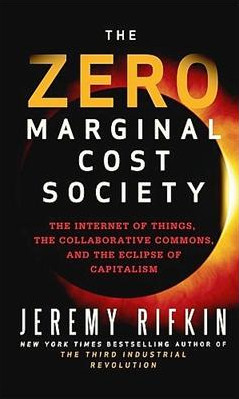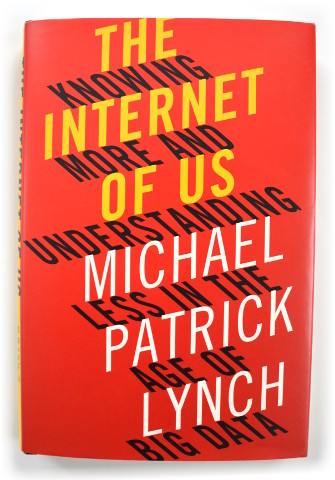Bibliography
Our vision and philosophy are continuously shaped and challenged by the works of both contemporary and historic authors. Here we present a selection of those which we've found to be most impactful.
Critical Path
Buckminster Fuller presents, among the many visionary topics covered in his 1980 master work, what he calls the computer accounting switchover, which is arguably what today we call the Internet of Things and the third industrial revolution. He describes his incredible life journey and mission as a designer for humanity, providing inspiration and courage for those who may strive to be as bold:
Now that I have proven that an individual can be world-effective while eschewing either money or political advantage-making, I do my best to discourage others from taking patents, which almost never “pay off” to the inventor. [...] Ideas are easy to come by; reduction to practice is an arduous but inspirationally rewarding matter.
Indeed, we too made the unconventional decision to publish, not patent, as we arduously advance the realisation of Bucky's prescient vision of technology, economics and humanity.
Here Comes Everybody
Clay Shirky's 2008 work is a prescient examination of the existing and emerging social tools of the day, their potential impact on society, and, critically, the means by which they may bring about revolutionary change. Quelling the impatience of those at the forefront of technological development:
The most profound effects of social tools lag their invention by years, because it isn't until they have a critical mass of adopters, adopters who take these tools for granted, that their real effects begin to appear.
At the time of publication, Twitter and Facebook were but a few years old, while today they've celebrated a decade and been joined by countless other social networks and tools. Shirky argues:
[F]or young people today, our new social tools have passed normal and are heading to ubiquitous, and invisible is coming.
Indeed this is what we observe today. Especially for the younger demographic, a complementary collection of tools, both social and purely technological, have become nearly invisible, such that when cleverly combined, they may bring about profound societal change.
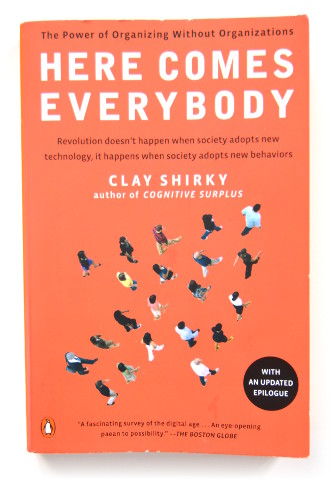
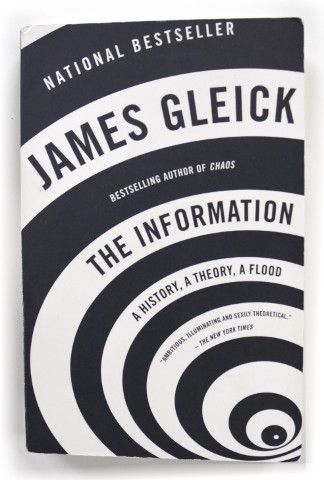
The Information
James Gleick's 2012 work opens by describing the 1948 invention of the transistor as: "the second most significant development of that year". Indeed, Claude Shannon's A Mathematical Theory of Communication would establish the bit as a unit of measure of information, "as though there were such a thing, measurable and quantifiable, as information".
Through engaging storytelling, Gleick takes the reader from the history of information, beginning with African drums, to its theory, beginning with Shannon, to its flood:
As the printing press, the telegraph, the typewriter, the telephone, the radio, the computer, and the Internet prospered, each in its turn, people said, as if for the first time, that a new burden had been placed on human communication: new complexity, new detatchment and a frightening new excess.
Sensing and understanding the world as information is a powerful framework for grasping the Internet of Things and the third industrial revolution.
The Zero Marginal Cost Society
Jeremy Rifkin's 2014 work evokes much of Fuller's optimism for what we today call the Internet of Things:
What makes the IoT a disruptive technology in the way we organize economic life is that it helps humanity reintegrate itself into the complex choreography of the biosphere, and by doing so, dramatically increases productivity without compromising the ecological relationships that govern the planet.
However, Rifkin delves deeper into the evolving economic models, speculating on the nature and timeline of a revolutionary shift:
the two economies will become accustomed to functioning in more of a hybrid partnership, with the Collaborative Commons increasingly becoming dominant by the mid-twenty-first century and the capitalist economy settling into a more supplementary role.
Understanding the economic impact of the IoT and Collaborative Commons facilitates the critical analysis of the evolving business models for the underlying technology platforms.
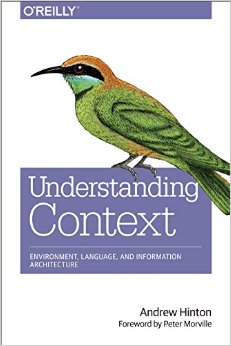
Understanding Context
Andrew Hinton's 2015 work is aptly marketed as Making sense of making sense. Written from the perspective of an information architect and UX strategist, it promotes design-thinking that is empathetic to the individual drowning in Gleick's "flood" of information from the software and interfaces of our modern technological world.
Understanding how we humans make sense of context allows the engineers and designers of the IoT to create human-centric environments which empower rather than overwhelm individuals.
The Internet of Us
Michael Patrick Lynch's 2016 work aims to "examine the philosophical foundations of [...] our digital form of life". The motivation? The urgent necessity to avoid the fate that concerned Bertrand Russell: being swallowed up by our technology.
The Internet of Things is becoming the Internet of Us, and figuratively, if not yet literally, we are becoming digital humans.
Addressing privacy and the concept of a person, Lynch affirms the importance of respecting our inherent dignity as autonomous individuals. He argues that:
[Privacy] matters, at least in part, because information privacy is linked to autonomy, and thereby an important feature of personhood itself.
Consistent with Rifkin and Gleick, who are cited throughout, Lynch argues that we should not fear information technology itself, but rather be mindful of our uses of the technology: the "us" in Internet of Us. It is "us" who collectively create the future, and Lynch places the responsibility on "us" to understand so that we can indeed be mindful.
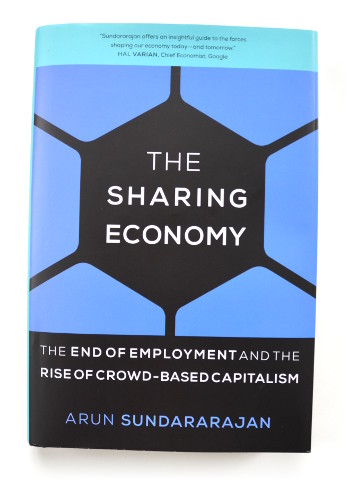
The Sharing Economy
Arun Sundarararjan's 2016 treatise introduces the term "crowd-based capitalism" to represent the emerging organisation of economic activity, whose sustained evolution rests upon:
- The consumerization of the digital
- The digitization of the physical ("rendering of things as information")
- The emergence of decentralized peer-to-peer
- The digitization of trust
Technology platforms figure prominently in the optimistic outcome scenarios of economics and employment, similar to those discussed by Fuller and Rifkin. Concluding with a citation by Nobel Laureat Michael Spence:
The truth is that the Internet-led process of exploiting under-utilized resources - be they physical and financial capital or human capital and talent - is both unstoppable and accelerating.
Sundarararajan's extremely well researched work provides firm foundations, but, as should be expected, no formula for the future.
History suggests that it is neither possible nor economically viable to simply adopt existing rules and apply them to a new economy. The challenge, then, is to determine what comes next.
One may again conclude that it is "us" who collectively create that future.
